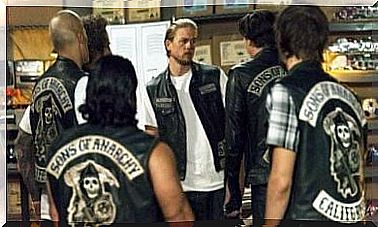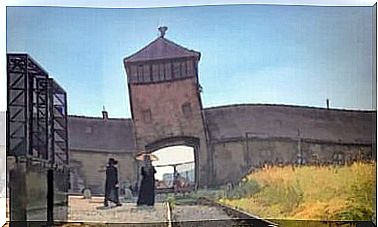Trainspotting And The Effects Of Addiction
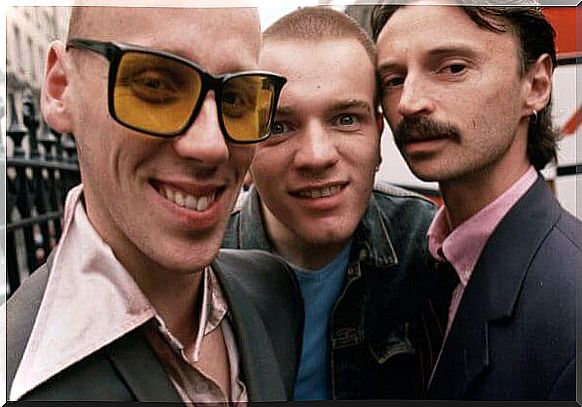
Trainspotting is a 1996 Scottish film directed by Danny Boyle; a landmark film in European cinematography that had a recent sequel, T2: Trainspotting. The truth is that it’s hard to forget such iconic characters, their strange reflections on life and the scary world they moved into. Trainspotting is not a movie for everyone, nor does it try to be. It’s not exactly a drama, but it’s not a comedy either…
Trainspotting is something completely different. It is the portrait of a society that became addicted to drugs, especially heroin. And this is where it takes us, with the help of some true twentieth-century philosophers who chose to live on the margins of society, and whose only thought was to become high. All of this may sound a little uncomfortable, but when we watch the movie, we discover a whole new, fascinating universe. We will discover views that have rarely been addressed in such a profound way in the world of film.
A work of art from the 20th century
Trainspotting is aggressive, direct and sarcastic. The characters are very well written and the scenes are very varied. We have the streets of Edinburgh, the worst bathroom in Scotland, an overdose with the legendary Lou Reed song Perfect Day in the background, a disturbing scene with a baby, and many more.
It is undoubtedly an unforgettable film that deals with the subject in such an open way, even though it does use metaphors a lot of the time. It is also brought to life by one of the best soundtracks of its time, and is a true work of art of the twentieth century.
The Philosophy of Trainspotting
The film focuses mainly on 4 characters, each with very different motivations and perspectives on life:
- Renton: is the main character, a young heroin addict who one day decides to quit drugs.
- Spud: Renton’s friend, is probably the most “hooked” character in the film, and more affected than anyone else by his habit. He is characterized as the typical stupid “junkie”. But at the same time, Spud is not naughty at all, and is the only one who can really be called a friend.
- Sick Boy: is another of Renton’s friends, although his loyalty is highly questionable. When he learns that Renton is thinking about quitting drugs, he decides to do the same just to annoy him. He is a film fanatic and has no morals at all.
- Begbie: is the oldest in the group, but is also the most restless. He is not a drug addict, but is a very violent character. He lives with the rest because he is on the run from the police. The others seem to be afraid of him, and he acts as a kind of leader.
The kind of life we are shown is one for slavery. A life where we work to pay the bills, have a big TV, get a partner, some friends and a job. Everything seems to be based on choices, but they are only really conditional choices to fit into the established, accepted social patterns. What happens to those who do not want to choose these things? They choose to live completely outside the system.
The consequences of addiction
For Renton, it is not easy to choose a life and follow the social model; in fact, it is boring and empty. Because of this, he decides to become a drug addict, and in that way, his only concern in life will be to get enough money to buy drugs. Trainspotting brings us closer to a different philosophy of life. They bring us close to an addict’s point of view. Renton himself explains that his choice is very simple. It is for pleasure only, and nothing else. Of course, he knows that the consequences of his addiction will only be bad, and he knows the risks he is taking by entering that world. He knows all this, and still decides to go inside.
All this is a kind of modern hedonism, a life beyond all that is accepted. A life where happiness and the purpose of life are summed up in one word: joy. And the search for the absolute joy is to take drugs.
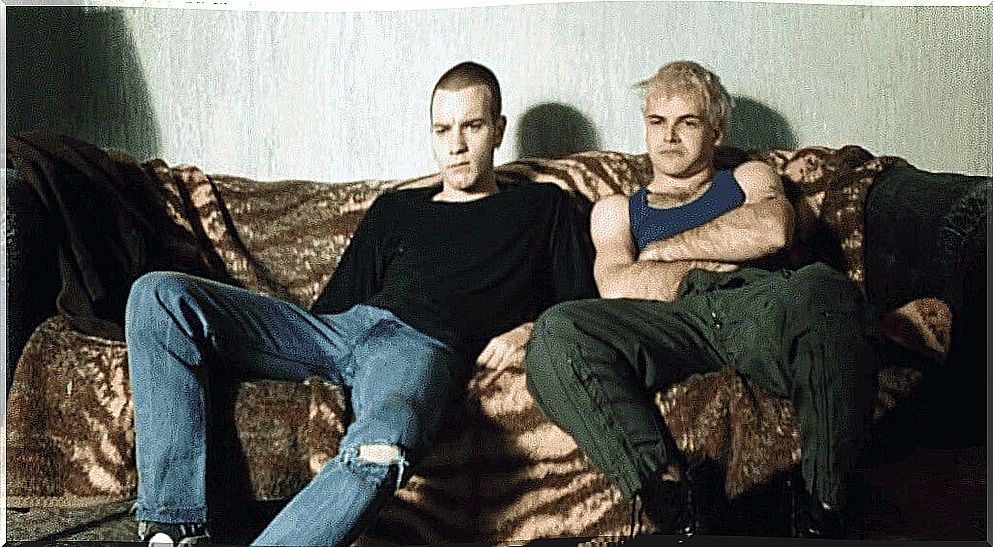
Another perspective on life
Despite this pursuit of pure pleasure, Renton explains that all or almost all addicts have at some point decided to get away from drugs, return to the real world, and start a “normal” life again. There is a bathroom scene in the film that is crucial to understanding this decision. It’s a kind of portrait of Renton’s life. It is an extremely unpleasant scene, but very complex at the same time. The bathroom is actually a reflection of his life, and his relationship with heroin.
Trainspotting gives us a different perspective on life, and explains the background for this choice. For these characters, the real world is synonymous with slavery and unhappiness. What they are doing is therefore deciding to escape from that reality and immerse themselves in a new mental state. Into another lifestyle that comes into being as a direct reaction to that system.
Trainspotting and addiction
Trainspotting introduces us to the reality of drug addicts’ lives, and to an “underworld” that we have never seen before, but one that really does exist. Trainspotting is not an ode to drugs, but rather the portrait of a generation and the consequences that drug abuse had on it. Heroin was a kind of epidemic at the end of the twentieth century, it got many young people hooked and took countless lives, not only directly, but also because it led to the spread of diseases such as HIV. All of this, along with the character’s philosophical reflections, is reflected in Trainspotting.
Trainspotting is Renton’s journey. The journey of an addict. From ecstasy and the first euphoria, through to misery and then a dive into the depths of despair. In the middle of his story, Renton comes in contact with Diane, a young teenager with whom Renton begins to have an affair. This girl, despite being so young, will be a kind of conscience for Renton. She wants to be the one to bring some reality to his life. She wants him to see that the world is changing, that the music he listens to is no longer in vogue, and that there are other possibilities outside of drugs.
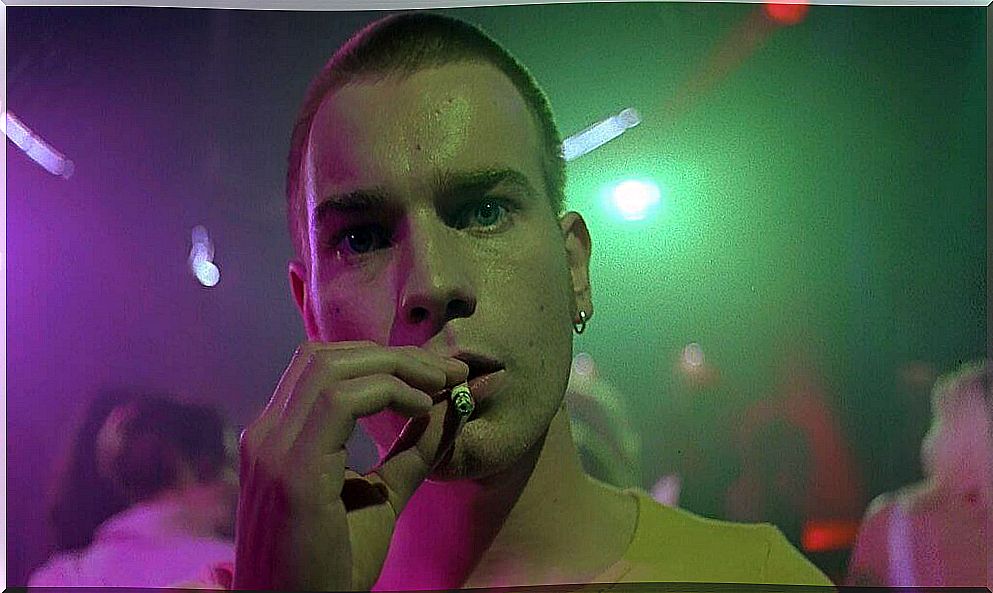
The changing world of drugs
Our world is evolving at a furious pace. Everything around us is changing. But in the world that Renton and his friends live in, time seems to have stood still. They live unaware of everything around them and the things that are happening. All these changes are also happening in the world of drugs. At the end of the twentieth century, the most important drug was heroin, while nowadays other drugs such as cocaine have gained a foothold. Diane already warned Renton about this, and we see this very well reflected in the sequel, T2: Trainspotting.
Trainspotting also brings us closer to the difficulties of detoxification. Renton has carefully prepared everything to cope with the withdrawal symptoms as best he can. He shuts himself in with an arsenal of “anti-abstinence” products, including valium. Renton tells us that he has achieved this thanks to his mother who is “in her own socially acceptable way”, a drug addict. In this way, he sends comments to those who are hooked on certain medications.
Trainspotting dives into the perspective of those who are addicted to drugs in a very bold way, and includes absolutely everything. Right from the first contact, through to pure addiction and detoxification, and then relapse and an almost poetic overdose. With a very unpleasant theme, Danny Boyle manages to make a fascinating film that allows us to understand a reality that is probably completely foreign to most of us.





